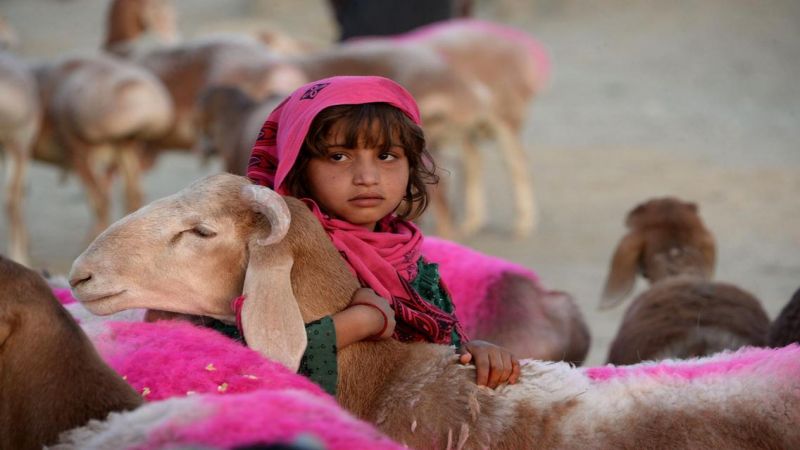
Local Editor
While millions of Muslims across the globe are sacrificing goats and cows to celebrate Eid al-Adha holidays, or the Islamic "Festival of Sacrifice" starting on Aug. 21, millions of people in the war-torn Yemen are unable to secure one meal a day.
According to recent UN reports, 22.2 million Yemenis depend on aid, and 8.4 million people out of Yemen`s 29-million population are struggling to secure next meal.
In Noqum livestock market in eastern Sana’a, dozens of people flocked to buy goats, cows to celebrate the sacrifice festival.
According to Xinhua, even some cattle here showed signs of acute malnutrition.
Hosen al-Rajawi, a buyer, said his family would share the cost of a sacrificial cow with six other neighbor families for the festival.
"The cow, which was priced at 350,000 Yemeni rials (636.36 U.S. dollars) during last year`s Eid al-Adha, is now sold at one million rials," al-Rajawi told Xinhua.
Saif Mohammed, another buyer in the market, complained that the cattle prices are much higher than the previous year.
"We have already been suffering from soaring prices, war, blockade. Therefore, we are enduring a lethal trinity," Mohammed said.
Meanwhile, Mohammed al-Firsi, a cattle trader, said the hikes in the prices were caused by the soaring prices of fodder, water and fuel.
"The business this year is very weak compared with the previous year because of the war, all-out blockade and the rise in exchange rate of dollar against the Yemeni rial," said al-Firsi.
The impoverished Arab country has been locked into a civil war since 2014.
The Saudi-led Arab coalition forces launched a military campaign in March 2015 in response to an official request from the former Yemeni President Abd-Rabbu Mansour Hadi to regain control.
In 2016, Hadi`s resigned regime moved the bank from the capital Sana’a to Aden.
The war has caused a rapid deterioration in the country`s already shaken economy and triggered the prices to soar.
In the meantime, more than tens of thousands of civil servants in the north remained unpaid for nearly 24 months due to the war.
Mohammed al-Alawi, a journalist in the Sana’a-based state-run 26 September daily newspaper, said he also does not have enough money to buy his five children meat during the ceremonies.
"I will buy my children one chicken on the first day of the four-day holiday, but I can`t secure the next meal," he said.
Source: News Agencies, Edited by Website Team